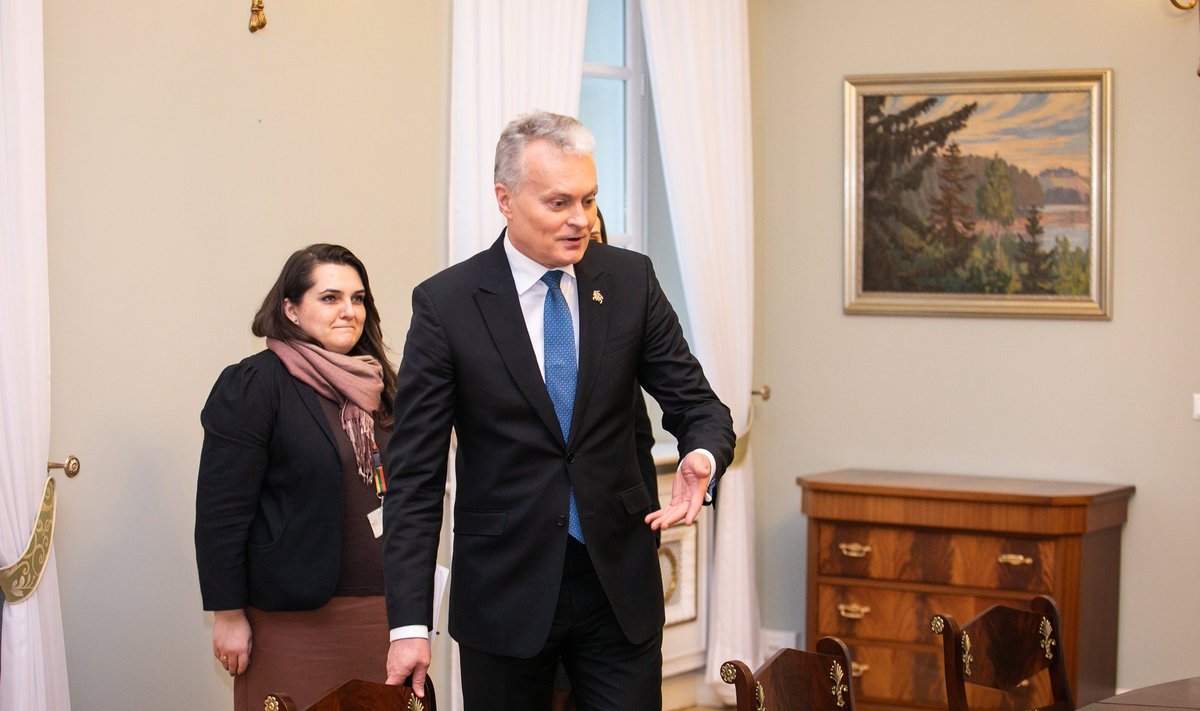The announcement comes as a last-minute reversal of the president's earlier decision to attend the ceremony in Jerusalem.
Nauseda thus follows the lead of his Polish counterpart, Andrzej Duda, who has declined the invitation to the Jerusalem forum because he was not invited to speak at the event, unlike Russian President Vladimir Putin.
Putin has come under fire in the West for his statements that Poland is responsible for the outbreak of World War Two and for defending a Soviet-German non-aggression treaty known as the Molotov-Ribbentrop Pact.
Antanas Bubnelis, the Lithuanian president's spokesman, declined to comment to BNS on Tuesday whether Nauseda's decision was linked to Putin's participation in the event and the row over Russian statements.
The spokesman said only that the president had decided to spend more time at the World Economic Forum in Davos.
"Instead of the previously planned two-day visit to the World Economic Forum, the president will stay in Davos for three days. The president is scheduled to meet with leaders of other countries and multinational businesses on Thursday, the additional day," Bubnelis said.
"The president will return from Davos on Thursday evening," he added.
Viktoras Pranckietis, the speaker of the Seimas, will go to Jerusalem at the president's request, according to the spokesman.
Nauseda's office said in a press release on Tuesday that the president would attend the 75th anniversary of the liberation of Auschwitz-Birkenau death camp in Poland on 27 January.
The event will take place at the Auschwitz-Birkenau State Museum under the patronage of the Polish president.
"I leave for a symbolic place – the Auschwitz-Birkenau death camp – to pay homage to the millions of Jews whose lives were destroyed by the Holocaust during World War II," Nauseda said in the press release. "I also bow to the two hundred thousand Jews who were Lithuanian nationals".
"We must honor the memory of the victims of the Holocaust, strive for historical justice and, at the same time, do our utmost to resist any form of hatred," he said.
Established in the Nazi Germany-occupied territory of Poland, Auschwitz was the largest concentration and extermination camp. About 1.5 million people of different nationalities were killed there in 1940-1945. The remaining survivors were freed on January 27, 1945.
